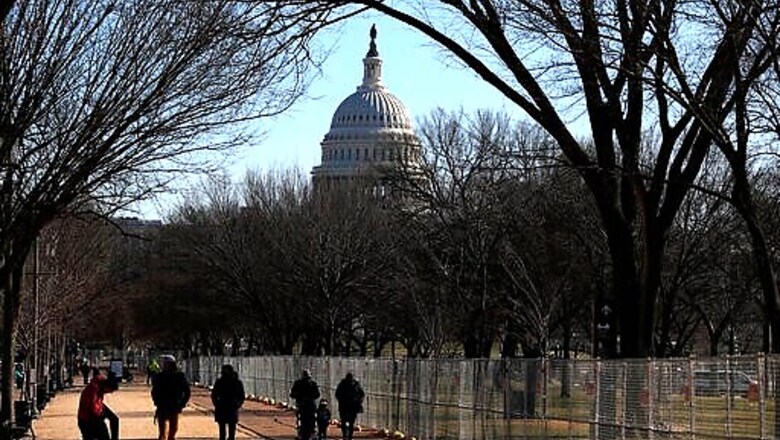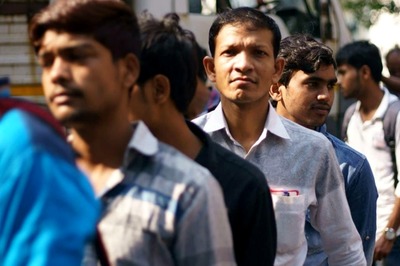
views
WASHINGTON: Top aides to President Joe Biden on Sunday began talks with a group of moderate Senate Republicans and Democrats on a $1.9 trillion coronavirus relief package as Biden faces increasing headwinds in his effort to win bipartisan backing for the initial legislative effort of his presidency.
Lawmakers on the right question the wisdom of racking up bigger deficits while those on the left are urging Biden not to spend too much time on bipartisanship when the pandemic is killing thousands of Americans each day and costing more jobs amid tightening restrictions in many communities.
At least a dozen senators met for an hour and 15 minutes in a virtual call with White House National Economic Council director Brian Deese and other senior White House officials. Many hope to approve a relief package before former President Donald Trump’s trial, which is set to begin in two weeks, overtakes Washingtons attention.
Sen. Angus King, an independent from Maine, called the opening talks a serious effort.
There was not a hint of cynicism or lack of commitment to at least trying to work something out, King said. If they were just trying to jam this through, I dont think it would have interrupted the Packers game.
King told reporters that there was absolute consensus among the group that the No. 1 priority was to speed up the distribution of vaccinations and expanding COVID-19 testing and tracing.
The White House did not seem to budge on breaking up the package or reducing the overall price tag, even as it pushes for bipartisan support. There was also no discussion of breaking the package apart or pushing it through on a procedural move that could be done without Republicans, King said.
Senators from both parties raised questions about the economic aid provisions, particularly making direct $1,400 payments to Americans more tailored to recipients based on need.
Senators also wanted more data on how the White House reached the $1.9 trillion figure.
Sen. Jeanne Shaheen, D-N.H., told The Associated Press that no red lines were drawn. But she added there was consensus among the call’s participants that the more targeted the aid is the more effective it can be.”
Overall, it was a conversation and it was not about drawing lines in the sand,” Shaheen said. It was about how can we work together to help the people of this country.
___
Associated Press writer Jonathan Lemire contributed to this report.
Disclaimer: This post has been auto-published from an agency feed without any modifications to the text and has not been reviewed by an editor
Read all the Latest News, Breaking News and Coronavirus News here




















Comments
0 comment